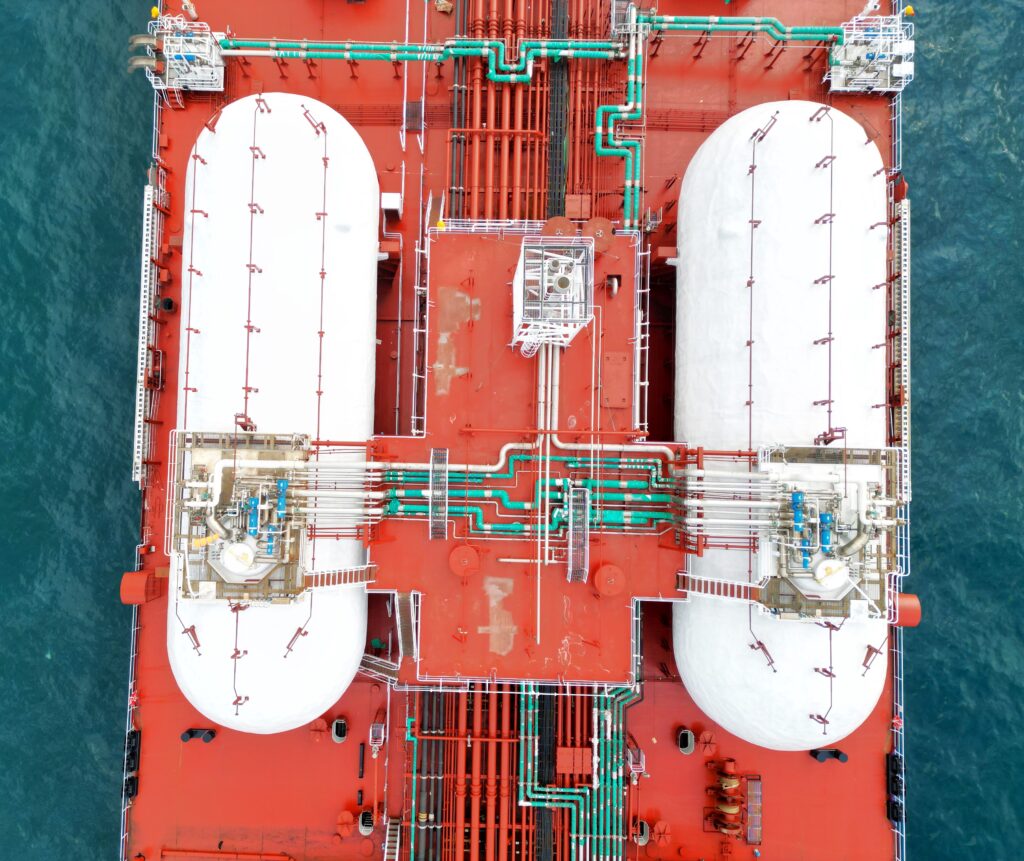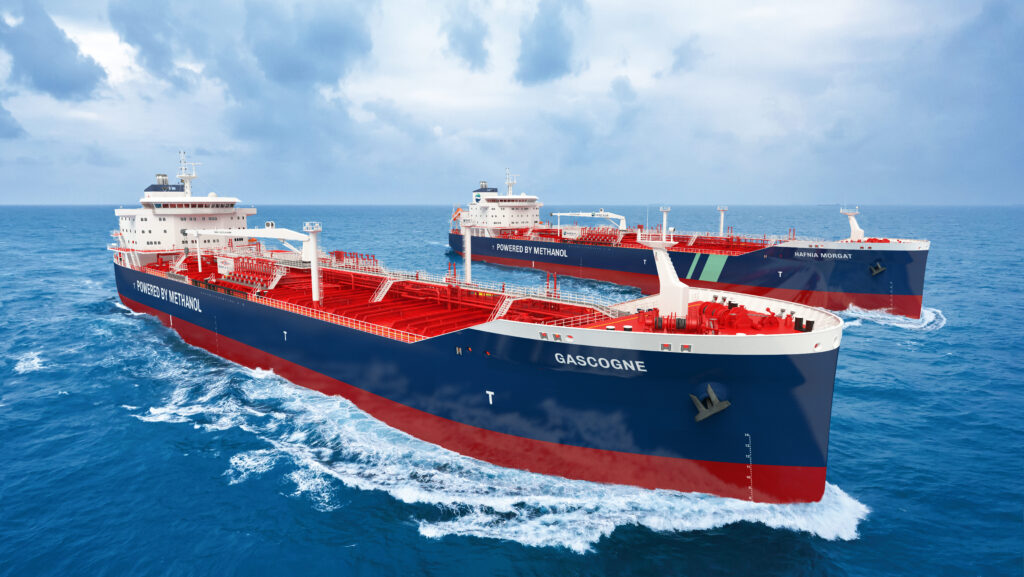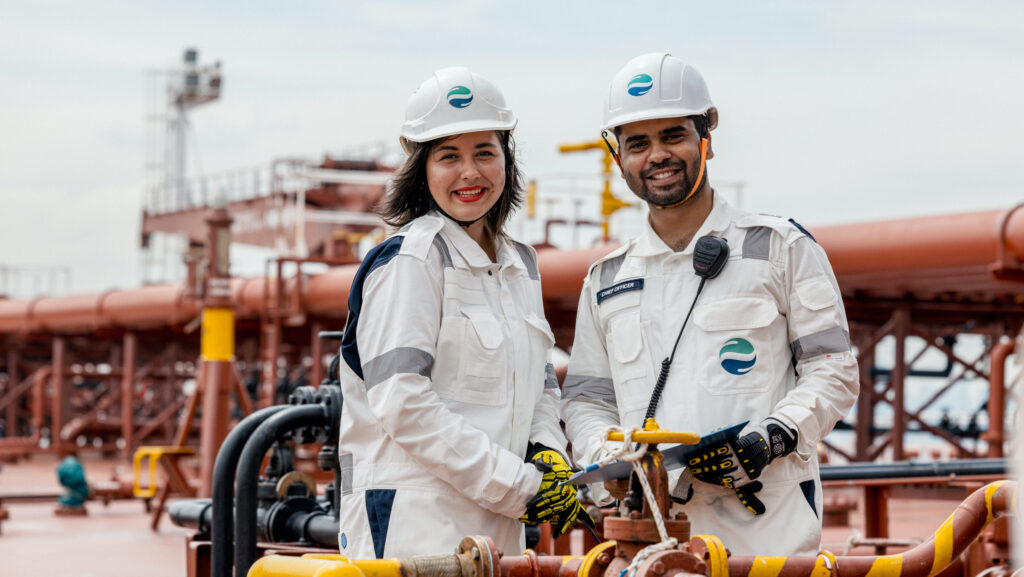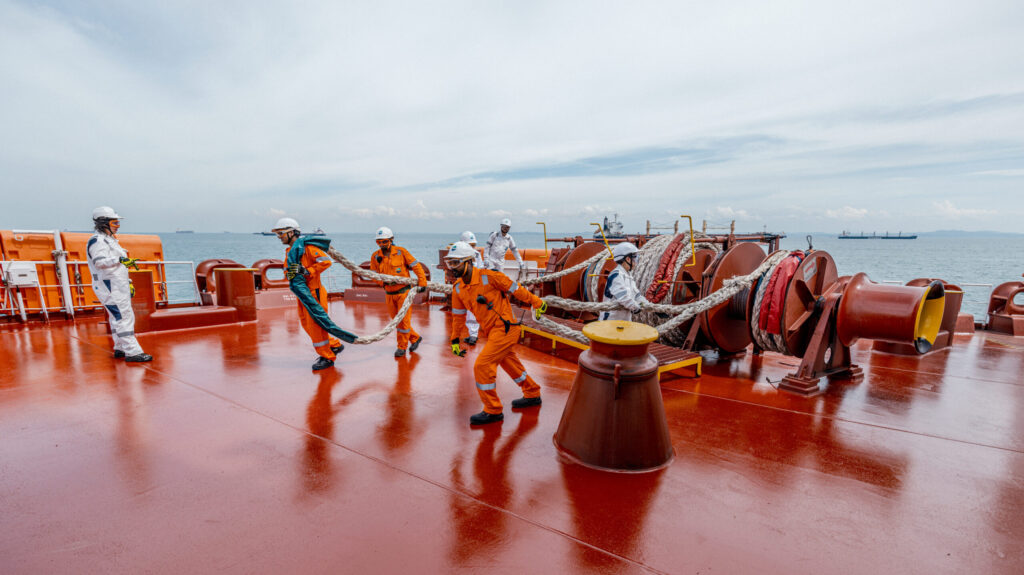Hafnia

Hafnia is one of the world’s largest owners and operators of product and chemical tankers.
We commercially operate more than 200 modern vessels within a fully integrated shipping platform that includes technical management, commercial and chartering services, pool management across eight segments. In 2025, Hafnia together with global commodities company Cargill announced and launched Seascale Energy, a large-scale marine fuels joint venture between Cargill and Hafnia.
Hafnia is a publicly traded company in Norway (Oslo Stock Exchange) and in the U.S. (New York Stock Exchange).
Hafnia is pursuing several new low carbon projects, including two projects in the U.S. and two projects in Europe.


Hafnia Partners with Clean Hydrogen Works and Big Hill in Transformational Clean Fuel Projects
Clean Hydrogen Works
Hafnia is collaborating with Clean Hydrogen Works (CHW) on the Ascension Clean Energy (ACE) project, a large-scale clean hydrogen-ammonia production and export initiative in Ascension Parish, Louisiana.
The project aims to provide affordable low-carbon ammonia, capturing 98% CO2 emissions. With a projected investment of $7.5 billion and the creation of 350 permanent jobs, the project is expected to have a significantly positive impact on Louisiana’s economy. Hafnia will leverage its expertise to transport clean hydrogen-ammonia globally, enhancing its transport portfolio with purpose-built vessels for zero-carbon contracts. The Final Investment Decision (FID) is targeted for the first half of 2026, with the Commercial Operations Date (COD) in 2029 and clean hydrogen ammonia transportation set to commence in 2030.
Hafnia’s CEO Mikael Skov emphasized the alignment of this project with Hafnia’s sustainability objectives, while CHW’s COO Mitch Silver highlighted Hafnia’s industry leadership and commitment to reducing carbon emissions.
Big Hill
Hafnia is partnering with Big Hill for the development of a sustainable hydrocarbon fuels plant project. This innovative project will focus on establishing a state-of-the-art facility dedicated to the production of low carbon intensity (CI) clean methanol, subject to FID. This early-stage collaboration highlights Hafnia’s commitment to advancing sustainable energy solutions and creating new opportunities in the shipping industry.
These synthetic hydrocarbon fuels are crucial for reducing the carbon footprint of various hard-to-abate industries, particularly maritime.
Initially, the plant will produce clean methanol, a type of methanol derived from natural gas but with significantly lower carbon emissions due to carbon capture and storage technologies. This low CI methanol serves as a cleaner alternative to traditional fossil fuels, supporting the transition to greener energy sources.
The development of this sustainable hydrocarbon fuels plant will open new avenues in the shipping industry. Hafnia and Big Hill will explore opportunities to transport CO₂ via CO₂ carriers, methanol and SAF via methanol and product carriers, thereby creating a comprehensive supply chain for sustainable fuels and supporting the global shift towards cleaner energy.
Other Future Fuel Projects
In addition to our U.S. projects, Hafnia is collaborating with European stakeholders to develop low-carbon-intensity (CI) products such as ammonia and methanol. Our value proposition focuses on efficiently transporting these low CI fuels from production facilities to end users while minimizing their carbon footprint across the supply chain. To achieve this, Hafnia is committed to designing and constructing innovative vessels powered by the low CI products transported.
Additionally, Hafnia is actively engaged in discussions with multiple projects that require the transportation of liquefied CO₂ and currently evaluating the optimal size and design specifications for such vessels.

Hafnia Orders Dual-Fuel Methanol Chemical IMO II MR Newbuilds
In 2023, Hafnia, in partnership with France’s Socatra, ordered four 49,800 deadweight dual-fuel methanol medium-range newbuilds from Guangzhou Shipyard International in China. This marks Hafnia’s first venture into dual-fuel methanol propulsion, aligning with our decarbonization goals.
The first vessel, Ecomar Gascogne, was delivered in January 2025, followed by the second vessel, Ecomar Guyenne in May 2025.
The use of green methanol onboard eliminates local pollutants, including SOx and Particulate Matter (PM), cuts NOx emissions by 60%, and reduces CO₂ emissions by close to 100% on a tank-to-wake basis versus conventional marine fuels.
Søren Steenberg Jensen of Hafnia emphasizes the need for proactive steps and partnerships to support the financial viability of new fuel technologies. This order is part of Hafnia’s ongoing collaboration with TotalEnergies to advance low-carbon shipping solutions.
Jerome Cousin of TotalEnergies underlines the importance of decarbonizing shipping and values the expanded relationship with Hafnia and Socatra for their expertise in providing safe, low-carbon shipping services.

Newbuild LNG Dual-Fuel Additions to the Hafnia Fleet
Hafnia took delivery of Hafnia Lillesand in March 2024. This is the final vessel in a series of four Aframax type LR2 vessels. The delivery of Hafnia Lillesand follows the 2023 delivery of her three sister vessels – the Hafnia Languedoc, Hafnia Loire, and the Hafnia Larvik. The four vessels are time chartered out to long-standing customers such as TotalEnergies and Equinor and are all equipped with cleaner dual-fuel propulsion technology.
These four dual-fuel Liquified Natural Gas (LNG) vessels, equipped with LNG propulsion technology, are part of Hafnia’s transition to greener fuels. The vessels are fitted with high pressure MAN ME-GI engines and achieve a methane slip of less than 0.2%, which is considered a 70% improvement from LNG low pressure engines.
Adopting LNG as a fuel aligns with Hafnia’s sustainability values and ambitions for a greener future. Switching to LNG as a fuel provides significant benefits, such as improving overall air quality and reducing GHG emissions. LNG is widely regarded as a promising marine fuel to help the shipping industry move towards its goal of a 50% reduction in GHG emissions by 2050.
LNG acts as a fuel that moves shipping towards its decarbonisation goals in the interim, in anticipation of hydrogen and ammonia becoming commercially viable. Compared to ships powered by traditional fuel oil, LNG as a marine fuel typically results in 97% lower Sulphur Oxide emissions, 97% lower Particulate Matter, 85% lower Nitrogen Oxide, and up to 20% lower overall GHG emissions.
The new greenhouse gas (GHG) regulations introduced by IMO Marine Environment Protection Committee (MEPC 83) require vessels to gradually reduce their annual greenhouse gas fuel intensity (GFI), which measures the amount of GHG emitted per unit of energy used. These dual-fuel LNG vessels are well-prepared for the transition as they can operate on bio-LNG when it becomes commercially available. Additionally, these vessels are designed from the outset to be upgraded to ammonia propulsion, requiring minimal capital expenditure.









